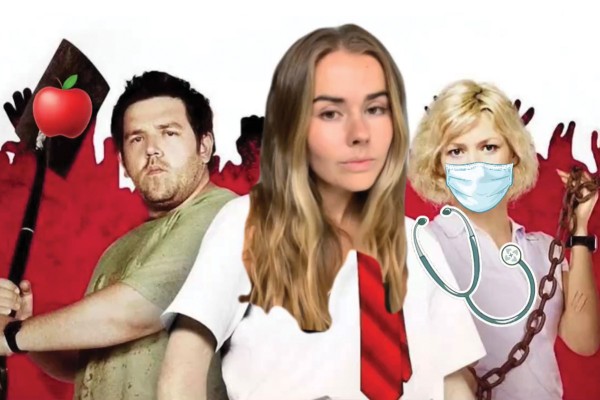To cope with long distance, my undergrad friend group has subscribed to a monthly newsletter called Letterloop. Each month brings a fresh set of questions for everyone to answer. They range from the mundane (“how’s work going?”), to the serious (“what’s your biggest regret in life?”) and the silly (“gayest thing you’ve ever done”). The company compiles them into an “issue” updating everyone on one another's lives – mainly how well we’re coping with being Adults.
In the latest issue, it asked, “If you were in a zombie apocalypse and you could only choose 3 people from the Letterloop group, who would be on your team?” Outside of a couple rogue answers – like one friend who just wished for a bullet “cause fuck living through that” – we all chose our friend who’s a Wellington Emergency Department nurse, and who I’ll call Grace. No one else would know how to stitch a wound (I’ve heard zombies bite), stave off infection, or perform CPR. Naturally, in times of disaster, it comes down to the people who are the backbone of society.
Our government was faced with a similar decision the last time there was an apocalyptic event in Aotearoa: the Covid-19 pandemic. Faced with the difficult choice of who would still need to work while the rest of the country went into lockdown, they identified “essential workers”. According to Government data in 2021, the largest essential workforce was in healthcare and social assistance. That includes nurses. Years later, however, that same government appears to have forgotten just how essential these workers are.
One Monday morning at 2am earlier this month, Grace sent this message into our groupchat: “Our healthcare system is actually fucking failing beyond public recognition.” They were ten nurses short that night, and had just been told that none of them would get a meal break. While they were meant to have two nurses in charge plus one doing ‘flow’, they had just one. A patient had shit himself in the corridor screaming to be cleaned for over an hour, but they didn’t have the staff or a private place to get cleaned up. “Like this is worse than third world countries,” she said. It wasn’t an exaggeration; nurses who had trained and worked in third world countries told her that.
An hour later, it got worse. Six nurses whose shifts had been extended to 3am were asked to stay until 7am, meaning working a 16 hour shift. “You can’t give safe care with [a 16 hour shift],” she said, probably typing on her phone while on a brief toilet break from the chaos. And it wasn’t even the busiest they would get. Technically still working a Sunday shift, Grace told us that Mondays were always their busiest, saying, “I don’t even wanna think about what it’s gonna be like tonight.” They were already eight registered nurses down and sick calls hadn’t started yet.
The weird part? When we all expressed our sympathies, she said, “Haha nah I’m chilling, it’s like this all the time it’s just flabbergasting every once in a while.” That’s just how it is, apparently. It’s a story that’s been reinforced by data showing 50% of all day shifts were understaffed between January and November last year across hospital wards in 16 health districts. That’s why more than 36,000 Te Whatu Ora nurses, midwives, health care assistants, and kaimahi hauora voted to strike in July, and will continue to do so until the Government pulls their heads out of their asses and does something about it.
The undervaluing of essential workers is a pattern across other industries. The building blocks of a functioning society are healthcare workers (health), primary industries (food), justice (law and order), education (kids are the future), government (big decisions to be made), and journalists (communicate big decisions). Throughout Covid, these were the people who kept the country – the world – running. But the government has forgotten the work of their colleagues, which has gone unnoticed and unrewarded. I just hope that it doesn’t take a zombie apocalypse for the Government to recognise the value of hardworking Kiwis who show up for their country every day without applause.







